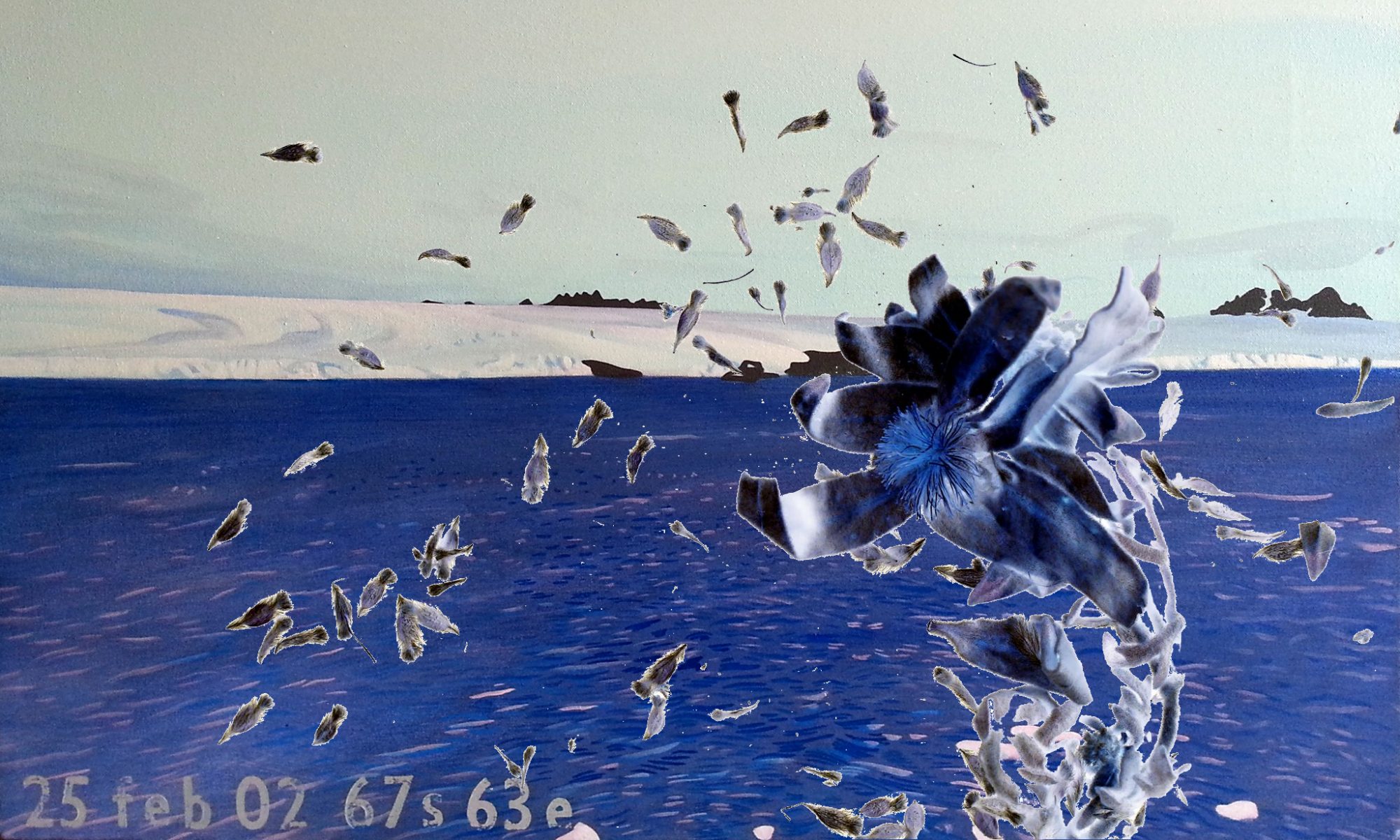Kathryn Yeo writes:
Hi Lisa,
When you get my letter, I think you will be very satisfied with the response in that.
In the mean time, I have just been looking at the animations and listening to the sounds (and oh, how they sound like your place!) and reading some of the information. I have one question at the point – do you have a ‘normal’ version of the project findings – ie alongside the website, are you going to write a ‘normal’ paper? I hestitate to use the word normal, but it has occurred to me that one of the reasons I have found it difficult to navigate a logical train of thought is that I don’t know how to read a website properly.
Below is a section from the water freezing and melting section:
“Public dialogue can occur between and with an Antarctic community and artists. Animation, the visual language of change, can be used to respond literally and metaphorically, to the written, visual and aural texts of those who work in Antarctica. Examples include 24 days, an animated Antarctic journal (Roberts 2003) which demonstrates how an individuals response to Antarctic landscape is shaped by an understanding of other perspectives. The on-line Antarctic Thesaurus and Journey will contain and animate multiple perspectives of Antarctic workers.
The aim of this research is first to collect evidence of what the scientists, and others who have worked in Antarctica, have observed and responded to in the landscape; second to devise an on-line animated interface through which to engage viewers with both the science and poetics of the data. Animation will be used to increase understanding of changes in Antarctic landscape as identified in the records and accounts provided by Antarctic base workers – the people who have studied it, and physically endured a full year of its changing landscape.”
I wanted to comment on this specifically.
Animation – the visual language of change. This is a really powerful statement. I am wondering if this is not the central theme or notion of your project. That change happens is inevitable to and as humans. We have always been interested in how and why change occurs. Antarctica provides an idealistic landscape of people, relationship to the environment, environment and place in time (in terms of when it was discovered – technological and sceintific age when things can be precisely recorded etc) for which to study the nature of change itself upon humanity.
I sort of get the feeling that focusing on Antarctica as a place rather than as a place in which to study the communication of change muddies the waters a bit. This makes the project an environmental, political thing. And that has always been at odds with how you talk about it, how you animate it. And this is perhaps why you are feeling the pull in two directions.
Simon Pockley: towards aestheticly scientific accurate material. John Hughes: towards a my personal journey through internal and external landscapes. These directions need not be contradictory.
I agree that they do not need to be contradictory but I do not think that either of them are completely right on their own.
I have been doing a lot of thinking about your work (and you thought I was just being silent and sitting still! – no no!)
.
The video journalist at yesterday’s Bathurst performance remarked that Jack Ward’s words were like the those of the Sufi poet Jalaluddin Rumi.
I find a Website of his poems.
.
.
This World Which Is Made of Our Love for Emptiness
Praise to the emptiness that blanks out existence. Existence:
This place made from our love for that emptiness!
Yet somehow comes emptiness,
this existence goes.
Praise to that happening, over and over!
For years I pulled my own existence out of emptiness.
Then one swoop, one swing of the arm,
that work is over.
Free of who I was, free of presence, free of dangerous fear, hope,
free of mountainous wanting.
The here-and-now mountain is a tiny piece of a piece of straw
blown off into emptiness.
These words I’m saying so much begin to lose meaning:
Existence, emptiness, mountain, straw:
Words and what they try to say swept
out the window, down the slant of the roof.
.
…and see that both write try to describe the indescribable.
This accords with a statement by Jack Ward, told me by Fred Elliott: “Words are very blunt instruments.”
